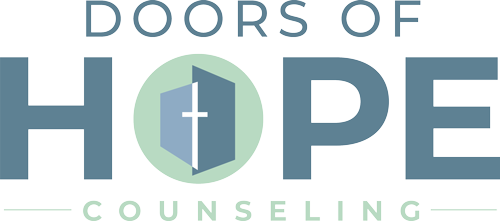By Faith Scott, LPC, Doors of Hope
“The longer this lifetime goes, the more convinced I am that our primary responsibility in life is to find a way to make peace with ourselves, our past, and our present—no matter what we face and no matter how often we need to do that.
It’s also our job to mindfully practice self-love. Every day. For all our lives. It’s not a narcissistic or obnoxiously selfish attitude toward life and our relationships. Self-love is a humbler, quieter thing. You’ll get used to it. I like it; you may too.” –from the revised edition of Codependent No More, How to Stop Controlling Others and Start Caring for Yourself by Melody Beattie
We have all heard the analogies and trendy hashtags. “You have to put your own oxygen mask on first.” “You can’t pour from an empty cup.” Also, terms like self-care, boundaries, andmindfulness are used more and more readily when discussing mental/emotional wellness. While it would be easy to pass these off as overused terms and phrases, the truth is, they point tosolid wisdom. One irony is self-empowerment and self-love only come from first acknowledging we are powerless.
As Melody Beattie discusses in her book, Codependent No More, How to Stop Controlling Others and Start Caring for Yourself, we each grow up with unspoken rules of engagement within our family systems. These rules lay the groundwork for not only our role within our family of origin but also, our relationships throughout our life.
They become the lens through which we view ourselves and our purpose in the world. We unwittingly choose relationships and behavior patterns that repeat and reinforce the same rules we grew up observing, experiencing, and believing. There is a cost that comes from these rules and patterns, particularly when they lack balance, discernment, and self-compassion. Conversely, there is power in examining and sometimes detaching from these patterns, even though there is discomfort in doing so. We can love the people in our family or in our close relationships, while acknowledging we are not responsible for their actions anymore than they are for ours. We are only responsible for ourselves.
The simple exercise of holding a hula hoop around your waist or even just making a circle with your arms, connecting the tips of your fingers in front of you, creating your own “circle of control”, is a visual used to teach children about how we are only in charge of what is inside of it. Our words and our actions are within our sphere of influence. The words and actions of others are not. The weather is not. Our ability to choose to prepare for the possibility of rain by bringing an umbrella IS in our control. As ridiculously obvious as this seems, we constantly try to control the actions and choices of others and invest deeply in the way they may react or respond, often causing tremendous frustration and stress. Saying yes when we mean no, overextending ourselves for others in ways that we end up resenting, etc. Much like the ill-fated Giving Tree written by Shel Silverstein, that could quite possibly be a poster story for the downfalls of codependency, we can claim to be/be labeled as “happy” after giving so much of ourselves when there is actually nothing left of us but a crude stump.
When we step back from trying to control what was never ours to control, it may not be like waving a magic wand, but we just might begin to see a pattern that is not only repeating, but futile. We can possibly even experience a sense of peace and awareness we otherwise could not.
It is important to note that there is no guarantee that letting go of control means everything will be perfect or even fine. What will happen is, our finite resources and gifts will be reserved for what we can impact. All that effort trying to control, rescue, change, fix, etc. is ultimately wasted. Melody Beattie says, “What we are trying to control is really controlling us. We are the person we set free when we practice Step One.” Step one, referring to Twelve Steps of Recovery. Melody Beattie references the steps as a resource of Codependents Anonymous. While the wording varies slightly between groups, it is “We admitted we were powerless over others—that our lives had become unmanageable.”
Letting go and letting God may feel far too lofty at first. That is totally understandable. Give yourself grace. Then, give yourself a little more. If and when you choose to lean into the journey of further understanding codependency, do so with compassion, curiosity, and community. A phrase you may hear in the twelve-step recovery world is “look for the similarities, not the differences.” It is a reminder that we are each on our own paths and are doing our own work, and yet we are all familiar with struggle, insecurity, and self-doubt. So, always proceed with respect, tenderness, and humility.
“I used to spend so much time reacting and responding to everyone else that my life had no direction. Other people’s lives, problems, and wants set the course for my life. Once I realized it was okay for me to think about and identify what I wanted, remarkable things began to take place in my life.”― Melody Beattie, The Language of Letting Go: Daily Meditations on Codependency

